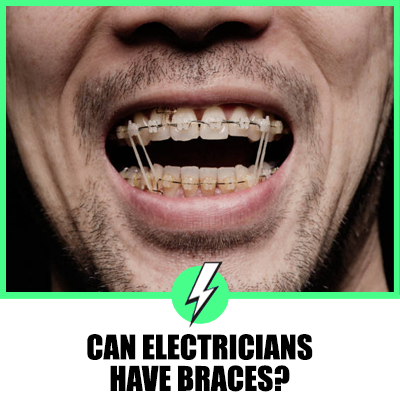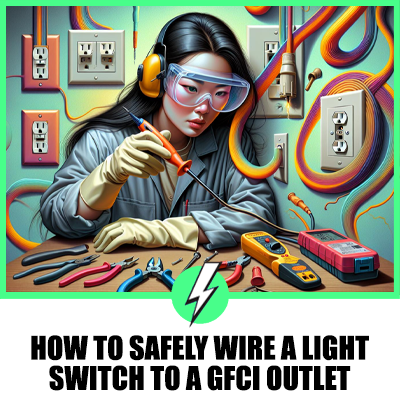Can Electricians Have Braces?
When it comes to the world of electricians, safety is paramount.
This extends to all aspects of their work, including what they wear and even what they have in their mouths.
This brings us to the question, can electricians have braces?

Contents
The Basics of Braces
Braces are orthodontic devices that are used to correct misaligned teeth and jaws.
They are typically made of metal, ceramic, or plastic and are attached to the teeth with a special adhesive.
A wire is then threaded through the brackets to apply pressure and move the teeth into the desired position.
Can You Wear Braces at Work?
The answer to this question is generally yes.
Braces are considered a medical device and are not typically something that would be restricted in the workplace.
However, there may be certain situations or jobs where wearing braces could potentially pose a risk.
Do Electricians Use Braces?
In the case of electricians, the main concern would be the metal in the braces conducting electricity.
However, the amount of metal in braces is minimal and the risk of electrical conduction through braces is extremely low.
From a discussion on the Firefighting subreddit, it was noted that braces are covered under the realm of medical devices and no employer is going to walk into that potential issue.
Another user noted that braces are definitely not what they meant at all when discussing jewelry or piercings rules.
Who is Suitable for Braces?
Anyone who has misaligned teeth or jaws is a candidate for braces.
This includes both children and adults.
The best time to get braces is typically during childhood or adolescence when the teeth and jaws are still growing and can be more easily moved.
However, adults can also benefit from braces.
Are Braces Considered Metal?
Yes, braces are typically made of metal, although they can also be made of ceramic or plastic.
The metal used in braces is usually a type of stainless steel or titanium alloy.
Is it Possible to Have Braces Without the Wire?
Yes, it is possible to have braces without the wire.
These are known as clear aligners or invisible braces and they are made of a clear plastic material.
They are custom-made to fit over your teeth and gradually move them into the correct position.
Insights from Online Discussions
In a discussion on Polytech Forum, it was noted that the metal in braces is not a good conductor of electricity and the risk of an electric shock is minimal.
On Answers.com, a user noted that while there is a risk of electrical conduction with braces, it is extremely low and should not be a concern for electricians.
A discussion on Wireville noted that the main concern for electricians with braces would be if they were working in an environment with a high magnetic field, as this could potentially interfere with the function of the braces.
On Pacemaker Club, a user shared their personal experience of being an electrician with braces. They noted that they had not experienced any issues or concerns related to their braces while working.
GCSEs to Become an Electrician
In the UK, to become an electrician, you typically need at least five GCSEs (or equivalent) at grades 9 to 4 (A* to C), including English, maths and science.
While not specifically required, studying subjects such as physics, design and technology, and engineering can also be beneficial.
From a discussion on The Student Room, it was noted that while chemistry is not specifically required to become an electrician, having a good understanding of the principles of science can be beneficial in this career.
Conclusion
While braces are made of metal, the risk of them conducting electricity is extremely low.
Therefore, there should be no issue with an electrician having braces.
However, as with any medical device, it’s always best to consult with a healthcare provider to ensure safety in the workplace.





